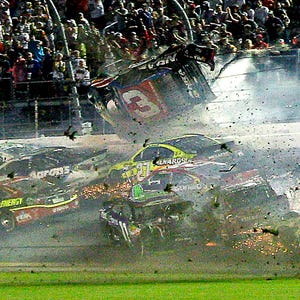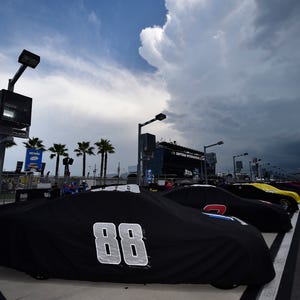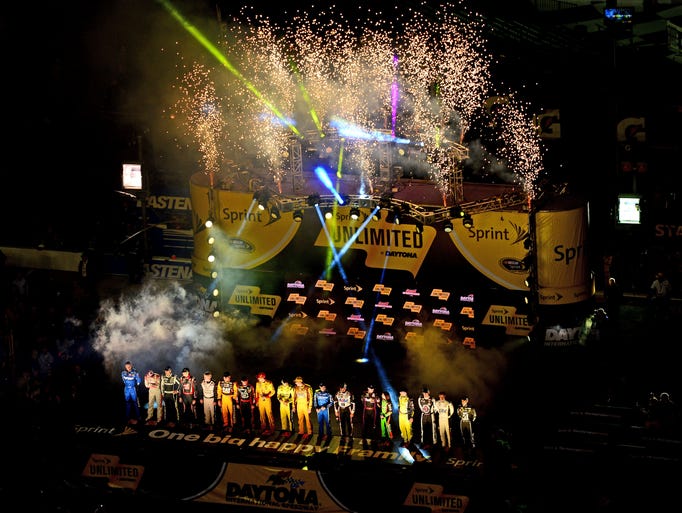NASCAR issues rules, punishments for on- and off-track behavior – USA TODAY
DAYTONA BEACH, Fla. — NASCAR unveiled a series of behavioral guidelines Friday night to spell out punishment for infractions both on and off the track.
The rules update concerns everything from domestic abuse to racial slurs to denigrating NASCAR to interfering with a Chase for the Sprint Cup driver’s race or fighting.
NASCAR senior vice president of racing operations Jim Cassidy told a small group of reporters the sanctioning body was seeking more transparency and clarity from its behavioral rules, not unlike its penalty system for technical violations.
“We didn’t spell it out as clearly as we could, so I think the perception might have been (penalties were decided by) ‘Do as you see fit,’” Cassidy said. “Certainly, we don’t want the perception that anything we do is ‘Do as you see fit’ because we are so far from that today as a sport.”
The rules will be effective immediately and concern “members” in all three of NASCAR’s national series. That means drivers, crewmen, sponsors — anyone who holds a NASCAR member license.
Among examples of the infractions and penalties:
— NASCAR could have only a “mild response” such as a mandatory meeting, warning or probation for situations like “heat of the moment actions,” “venting” or a driver-to-driver confrontation that results in a shoving match.
— There could be a $10,000-$15,000 fine or probation for things like criticizing the sport, verbal abuse of a NASCAR official, media member or fan or intentionally damaging another vehicle without endangering anyone nearby.
— A loss of 25-50 points plus a $50,000-$100,000 fine or one race suspension could be in line for things like a physical confrontation with an official, media member or fan, a confrontation with a NASCAR member that includes more than a shove, attempting to manipulate a race or intentionally wrecking another vehicle — even if the car stays on the track.
— The two-race suspension, loss of 50-100 points and $150,000-$200,000 fine could be used in a situation where another driver is targeted while in a vulnerable position (like when the vehicle is stopped), or premeditatedly removing another competitor from championship contention when not racing for position (like Matt Kenseth did to Joey Logano last year at Martinsville Speedway).
— An indefinite suspension or termination could occur due to slurs toward race, sexual orientation, religion or age — as well as being charged with or convicted of a crime.
NASCAR officials can take many factors into consideration when determining severity of the punishment, including a driver’s past history, whether the explanation was plausible and whether there was an “indication of genuine remorse or attempts to work things out with the other party in a civil manner.”
Officials know they can’t make a rule for every scenario, but Cassidy called the new guidelines “a good foundation to build off of.”
“(The drivers are) hard-nosed competitors and they just want to know what the rules are,” Cassidy said. “It will be up to them to either follow them or not.”
Cassidy emphasized the new regulations are “not an effort to change the way the drivers race today.”
“NASCAR is an aggressive sport,” he said. “We understand drivers are going to be aggressive to race for position. That is not going to change. … They should have a better understanding of what exactly may transpire if it’s determined they cross the line.”
Follow Gluck on Twitter @jeff_gluck
PHOTOS: 2016 Sprint Cup Series schedule and venues







